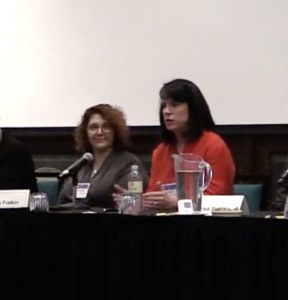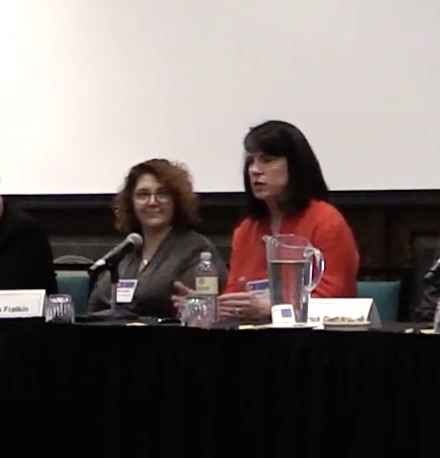 In this video from the HPC User Forum, Kelly Gaither from TACC presents: The Computing4Change Program.
In this video from the HPC User Forum, Kelly Gaither from TACC presents: The Computing4Change Program.
Computing4Change is a competition empowering people to create change through computing.
The competition is for students from diverse disciplines and backgrounds who want to work collaboratively to:
- Learn to apply data analysis and computational thinking to a social challenge
- Experience the latest tools and techniques for exploring data through visualization
- Expand skills in team-based problem solving
- Learn how to communicate ideas more effectively to the general public
Kelly Gaither joined Dell Medical School from the Texas Advanced Computing Center, where she is a senior research scientist, the director of visualization and the interim director of education and outreach. Gaither obtained her bachelor’s and master’s degrees from Texas A&M University in computer sciences and completed her Ph.D. in computational engineering at Mississippi State University. She has received a number of honors and awards including the IEEE Service Award for Chairing IEEE Visualization and the Outstanding Staff Researcher award. Gaither’s research focuses on visual analytics of large, heterogeneous health-related data. Her work has been supported by several grants funded by entities such as the Department of Homeland Security, Microsoft Corp. and the National Science Foundation. Her work has been published in journals such as IEEE Transactions on Visualization and Computer Graphics and Computing in Science & Engineering, and she has co-authored textbook chapters.
In this video from the HPC User Forum, Keith Gray from BP leads a panel discussion on STEM and HPC Workforce Issues.
You may have seen articles on the anticipated shortfall of engineers, computer scientists, and technology designers to fill open jobs. Numbers from the Report to the President in 2012 (President Obama’s Council of Advisors on Science and Technology) show a shortfall of one million available workers to fill STEM-related jobs by 2020. This is just in the US — Europe is also projecting a similar gap between available jobs and suitable candidates.





